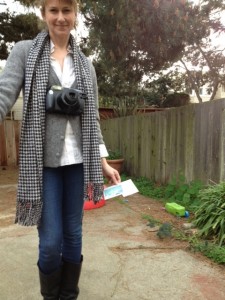ARGUMENT IN SHELTER
The white matter of sky unhinges to spit
a scatter, the sort that accumulates quickly,
drenches. You out there in your clothes.
Me in here in my clothes. Left to ask
and ask, what precisely is
our arrangement? Green branches spindle
over a hedge’s suggested height, the material
of newly paved roads bends in the distance.
Each one creaks open, their cranked yen
unsatisfied. The earth drinks it up.
Birds shelter to encompass and produce
our grand scheme in real-time concentration.
Winging out space beyond the moderate peaks
of houses I stare past,
beyond the mouth of the river, beyond
stagnant, static color, middle lost
to dull light, they softly cluster
under our high cover
in this narrow passage fully dry.
ARGUMENT AFTER ECSTASY
Vision and actuality on a track
measured by fallen oak
leaves and ash.
Clattered mud
pushed off earth with footstep, boot
lift,
depression,
lift.
The fogged out leaves,
damp and northern. A shag,
a square—
I have had my vision.
There is no emperor to offer his thumb
as perfect measure
nor can each progression be
accounted for, every discrepancy
mapped out for actual.
You go off into the woods and sink
into composting leaves,
fungi,
fallen trunks.
You other one, you branch.
Concentrate—
one line, another and now,
now you have had it.
PERPETUAL NOON
Atlas spreading out to islands,
their recycled borders.
Blue and white
and fantasy.
Light edging through a blind
one thousand miles away.
Illumined, observed
there and gone.
We own all this real estate in
one embrace.
Lured forward
by a bladed field silver and
racked in wind.
There is that simple job we yearn for.
Going over the interview
endlessly in our minds.
I had been living in the northeast of England. It was cold there, moody, and beautiful. Having studied and taught rhetoric, I wrote a few “Argument” poems. In truth, every poem I compose is an argument. The key, to me, is that the argument is not logically conveyed. I find myself interested in the sideways rhetoric a work of art produces. I have, many times, been convinced of a thing, not knowing what of nor how until weeks after encountering a piece of art. This sideways approach (I can’t seem to do anything straight on!) extends to the logic behind some poem titles. Because I was living on an island, I read Atlas of Remote Islands by Judith Schalansky. I realised that I have nearly always lived on an island. The kinds that don’t seem like islands, but are indeed. I thought of Rilke’s “Archaic Torso of Apollo” and the line “for here there is no place/ that does not see you.” That’s what I imagine a shadowless, perpetual noon to be. No hiding.
 Emily Wolahan’s first collection of poems, HINGE, is forthcoming in June 2014 from National Poetry Review Press. Her work has appeared in Boston Review, DIAGRAM, New Linear Perspectives, Drunken Boat and other journals. She co-edits JERRY Magazine and lives in San Francisco.
Emily Wolahan’s first collection of poems, HINGE, is forthcoming in June 2014 from National Poetry Review Press. Her work has appeared in Boston Review, DIAGRAM, New Linear Perspectives, Drunken Boat and other journals. She co-edits JERRY Magazine and lives in San Francisco.